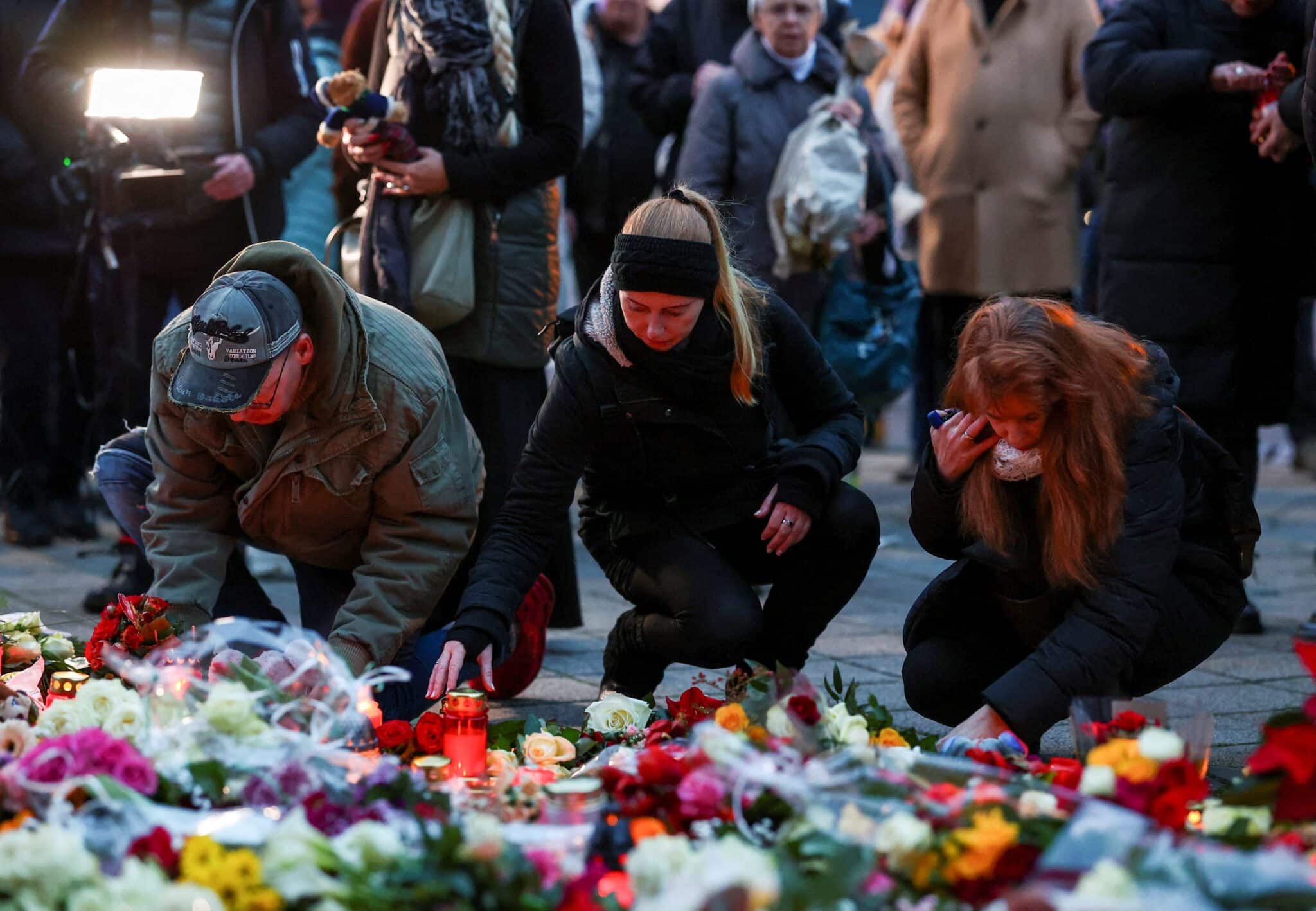WASHINGTON (CNS) — Long before graduation ceremonies are over, college administrators usually have an eye on the upcoming fall semester. And this year, even with virtual commencement ceremonies, the look to the next academic year is inevitable. Except this year is completely different.
Because this fall, unlike any other new college year, a big unknown is the extent the country could still be in the midst of the pandemic that has already upended the nation’s health and economy, and going back to business as usual just isn’t on any back-to-school checklist.
Colleges nationwide started pulling their students out of study-abroad programs in Europe in late February and early March as the coronavirus hit Italy. By mid-March as the virus spread in the United States, most colleges sent their students home with an indefinite date to resume in-person classes, and then they extended the transition to online education through the end of the spring semester.
And while most summer in-person programs have been canceled, many schools hope to be ready to welcome students back in the fall.
To this end, colleges and universities have put pandemic task force teams in place evaluating every possible measure necessary to ensure the safety of entire school communities.
The Chronicle of Higher Education reported May 18 that 68% of 600 colleges and universities were planning to reopen with in-person education in the fall, while 10% were waiting to decide and another 10% were choosing a range of scenarios. An online format was the choice for 7% of schools and a hybrid model was the choice for 6%.
Catholic colleges and universities primarily fell within the reopening in-person category, while a handful were putting off their final decision until some point in June.
Several college presidents addressed reopening plans in letters to students, faculty members and parents posted on university websites.
A letter to faculty posted May 18 by Holy Cross Father John Jenkins, president of the University of Notre Dame, announced the school would begin classes during the week of Aug. 10 and continue without a fall break in order to end the semester before Thanksgiving. By not having breaks, the school hopes to eliminate students coming back to campus with potential infections.
But for Notre Dame, or any university or college, to open its classrooms and residence halls back to students en masse this fall, or whenever the fall semester starts, involves immense emergency preparation.
As Father Jenkins put it: “Bringing our students back is in effect assembling a small city of people from many parts of the nation and the world, who may bring with them pathogens to which they have been exposed. We recognize the challenge, but we believe it is one we can meet.”
A first step outlined by Notre Dame and other schools is to provide testing and to isolate any students who test positive for COVID-19 and then to continue with testing, contact tracing and quarantining protocols throughout the semester.
John Garvey, president of The Catholic University of America, similarly announced plans for the university’s reopening in a May 7 announcement that he said will begin with faculty and staff and then students.
“We are taking precautions to keep our campus as safe as possible. These include attention to social distancing, aggressive cleaning protocols, face coverings where appropriate and sneeze guards at various places around campus,” he said.
The school president said the university might offer classes in both an in -person and online format to provide flexibility.
Chicago’s DePaul University, with more than 25,000 students, plans to reopen this fall for “limited in-person learning and reduced occupancy in on-campus student residences,” said the Vincentian university’s president, A. Gabriel Esteban, May 15. Although some classes will be held on campus, he said, more classes than usual will continue to take place at least partially online.
Even with all the precautions in place, school officials have expressed, even in online announcements, that this is new turf for all of them.
When Donna Carroll, president of Dominican University in River Forest, Illinois, announced plans to reopen the campus for its 3,000 students in the fall, she said it with “cautious optimism” and also with the caveat it would “not be business as usual.” She noted that school officials were looking at the size and number of classes offered at any one time and also residence hall occupancy, dining hall capacity, and numbers allowed at events and gatherings.
“Where appropriate, we will create more intentional distancing in offices and provide protective gear,” she said.
Also, many school administrators have acknowledged the mere logistics of reopening brings up layers of questions about how this will work.
Jo Ann Rooney, president of Loyola University Chicago, echoed many of these questions in a May 7 announcement. She said the school’s emergency response team of 265 members has been trying to address common questions such as: “How will we conduct classes in the fall — in person, online or a blend of both? How do we use residence halls safely? When can we return to our offices? How many students will join us for the fall? How will we balance the budget? Will I have a job? How can I feel safe?”
She said the university will answer these questions “based on the evolving data and guidance from public health and government officials” and with the “safety of our staff, faculty, and students at the forefront.”
In the meantime, she said the Jesuit university balances commitment to the person and the institution and mission, and said there is a “built-in, healthy tension between caring for both.”
She said in the current moment “difficult choices and decisions are made even more challenging by the lingering uncertainly of the nature of the ‘changed normal.'” She also placed the task of moving ahead in a spiritual light, saying: “Prayerful discernment is the only way we can do everything possible to care for both our people and our beloved university.”
Joseph Nyre, president of Seton Hall University in South Orange, New Jersey, similarly expressed concern and hope amid the health and economic frailty resulting from the coronavirus. In an April 27 letter, he said the “decisions we make and actions we take are guided not only by analysis and consultation, but also by our values and our faith.”
“The ultimate goal,” he said, “is for Seton Hall to come out on the other side of these dark days shining a bright light on the possibilities for the future, perhaps even discovering new ways to provide a powerful education rooted in our mission and our Catholic intellectual tradition.”
By Carol Zimmermann | Catholic News Service







News & Commentary
Caution tops checklists for Catholic colleges to reopen in fall
WASHINGTON (CNS) — Long before graduation ceremonies are over, college administrators usually have an eye on the upcoming fall semester. And this year, even with virtual commencement ceremonies, the look to the next academic year is inevitable. Except this year is completely different.
Because this fall, unlike any other new college year, a big unknown is the extent the country could still be in the midst of the pandemic that has already upended the nation’s health and economy, and going back to business as usual just isn’t on any back-to-school checklist.
Colleges nationwide started pulling their students out of study-abroad programs in Europe in late February and early March as the coronavirus hit Italy. By mid-March as the virus spread in the United States, most colleges sent their students home with an indefinite date to resume in-person classes, and then they extended the transition to online education through the end of the spring semester.
And while most summer in-person programs have been canceled, many schools hope to be ready to welcome students back in the fall.
To this end, colleges and universities have put pandemic task force teams in place evaluating every possible measure necessary to ensure the safety of entire school communities.
The Chronicle of Higher Education reported May 18 that 68% of 600 colleges and universities were planning to reopen with in-person education in the fall, while 10% were waiting to decide and another 10% were choosing a range of scenarios. An online format was the choice for 7% of schools and a hybrid model was the choice for 6%.
Catholic colleges and universities primarily fell within the reopening in-person category, while a handful were putting off their final decision until some point in June.
Several college presidents addressed reopening plans in letters to students, faculty members and parents posted on university websites.
A letter to faculty posted May 18 by Holy Cross Father John Jenkins, president of the University of Notre Dame, announced the school would begin classes during the week of Aug. 10 and continue without a fall break in order to end the semester before Thanksgiving. By not having breaks, the school hopes to eliminate students coming back to campus with potential infections.
But for Notre Dame, or any university or college, to open its classrooms and residence halls back to students en masse this fall, or whenever the fall semester starts, involves immense emergency preparation.
As Father Jenkins put it: “Bringing our students back is in effect assembling a small city of people from many parts of the nation and the world, who may bring with them pathogens to which they have been exposed. We recognize the challenge, but we believe it is one we can meet.”
A first step outlined by Notre Dame and other schools is to provide testing and to isolate any students who test positive for COVID-19 and then to continue with testing, contact tracing and quarantining protocols throughout the semester.
John Garvey, president of The Catholic University of America, similarly announced plans for the university’s reopening in a May 7 announcement that he said will begin with faculty and staff and then students.
“We are taking precautions to keep our campus as safe as possible. These include attention to social distancing, aggressive cleaning protocols, face coverings where appropriate and sneeze guards at various places around campus,” he said.
The school president said the university might offer classes in both an in -person and online format to provide flexibility.
Chicago’s DePaul University, with more than 25,000 students, plans to reopen this fall for “limited in-person learning and reduced occupancy in on-campus student residences,” said the Vincentian university’s president, A. Gabriel Esteban, May 15. Although some classes will be held on campus, he said, more classes than usual will continue to take place at least partially online.
Even with all the precautions in place, school officials have expressed, even in online announcements, that this is new turf for all of them.
When Donna Carroll, president of Dominican University in River Forest, Illinois, announced plans to reopen the campus for its 3,000 students in the fall, she said it with “cautious optimism” and also with the caveat it would “not be business as usual.” She noted that school officials were looking at the size and number of classes offered at any one time and also residence hall occupancy, dining hall capacity, and numbers allowed at events and gatherings.
“Where appropriate, we will create more intentional distancing in offices and provide protective gear,” she said.
Also, many school administrators have acknowledged the mere logistics of reopening brings up layers of questions about how this will work.
Jo Ann Rooney, president of Loyola University Chicago, echoed many of these questions in a May 7 announcement. She said the school’s emergency response team of 265 members has been trying to address common questions such as: “How will we conduct classes in the fall — in person, online or a blend of both? How do we use residence halls safely? When can we return to our offices? How many students will join us for the fall? How will we balance the budget? Will I have a job? How can I feel safe?”
She said the university will answer these questions “based on the evolving data and guidance from public health and government officials” and with the “safety of our staff, faculty, and students at the forefront.”
In the meantime, she said the Jesuit university balances commitment to the person and the institution and mission, and said there is a “built-in, healthy tension between caring for both.”
She said in the current moment “difficult choices and decisions are made even more challenging by the lingering uncertainly of the nature of the ‘changed normal.'” She also placed the task of moving ahead in a spiritual light, saying: “Prayerful discernment is the only way we can do everything possible to care for both our people and our beloved university.”
Joseph Nyre, president of Seton Hall University in South Orange, New Jersey, similarly expressed concern and hope amid the health and economic frailty resulting from the coronavirus. In an April 27 letter, he said the “decisions we make and actions we take are guided not only by analysis and consultation, but also by our values and our faith.”
“The ultimate goal,” he said, “is for Seton Hall to come out on the other side of these dark days shining a bright light on the possibilities for the future, perhaps even discovering new ways to provide a powerful education rooted in our mission and our Catholic intellectual tradition.”
By Carol Zimmermann | Catholic News Service